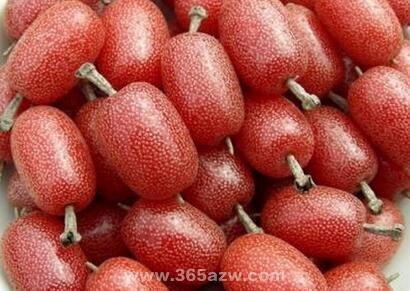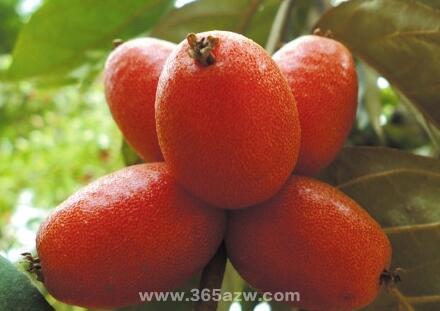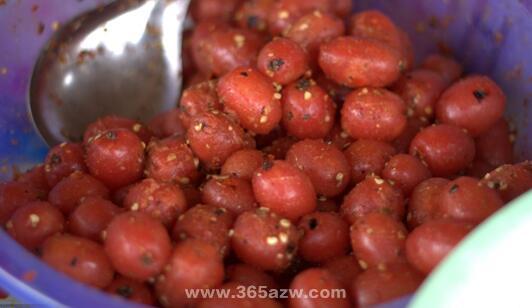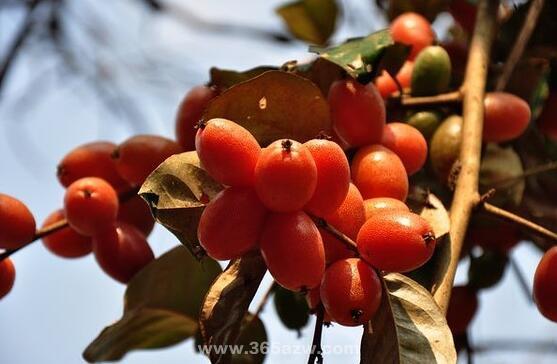Introduction to the culture technology of goat milk fruit
Goat milk is a kind of plant fruit rich in nutrients. How much do you know about cultivating this plant? Next, we will introduce the breeding technology of goat milk fruit in detail for you.

Ecological shape of goat milk fruit:
Climbing Elaeagnus angustifolia evergreen climbing shrub, 2-10m long. Unarmed, young branches densely covered with rust-colored scales, buds green. Leaves alternate; petiole rust-colored, 10-16mm long; leaves papery or subleathery, elliptic, 8-16cm long, 2.2-6cm wide, apex acuminate or obtuse, base broadly cuneate, obtuse or rounded, entire; lateral veins 7-9 pairs, reticulate veins slightly conspicuous above after drying. Flowers brown, outer brown scale, often 1-3 clusters in leaf axils, pedicel 3-6mm long; perianth tube cylindric, 8-9mm long, distal 4-lobed, lobes broadly triangular, inner surface densely stellate pubescent; stamens 4, filaments extremely short, anthers elliptic, 1.5-1.8 mm long; style glabrous, almost flush with perianth lobes. The fruit is large, oval-shaped, 24-26mm long, 10-13mm in diameter, with rust-colored scales and a conspicuous eight-ribbed stone. The flowering period is from October to November and the fruiting period is in March of the following year.
The goat milk fruit has strong cold resistance, can survive the winter in the open field in the south of North China, can endure the absolute low temperature of minus 8 ℃, the suitable temperature for growth is 24-34 ℃, and it can withstand high temperature and extreme heat. Although the country of origin grows under the sparse forest on the hillside and in the shady valley, it is not afraid of sun exposure and has strong shade tolerance. It is not strict with the soil, can grow on neutral, acidic and calcareous soil, and is resistant to drought and barren, but not to waterlogging. Shade tolerance is general, like high temperature, humid climate, its salt resistance, drought resistance and cold resistance are good, wind resistance is strong. Born in mountain trees and beside Xiangyang valleys. Or cultivated.

Propagation techniques of Sheep Milk Fruit
1. Sowing: every year in mid-May and late May, the fruits will be collected and piled up. After a period of ripe self-decay, the seeds will be washed and sown immediately. The seed germination rate is only about 50%, so we should appropriately increase the sowing rate, adopt the trenching strip sowing method, the row spacing is 15 to 20 meters, the soil thickness is 1.5 meters, and cover the grass to preserve soil moisture after sowing. After sowing, it has entered summer, and the temperature is high, so it can all come out in more than a month. We should immediately set up a shed for shade, top dressing twice in that year, transplant seedlings in the early spring of the next year, and then come out of the nursery after 1-2 years of cultivation.
2. Cuttings: the cuttings of goats and milks are mostly carried out in the first ten days of April. The full 1-and 2-year-old branches are cut as cuttings, which are cut into a section 12-15 cm long, leaving 1-2 leaves and 5-7 cm deep in the soil. If you need to set up a shed for shade in the open-field seedling bed, the pot should be maintained under the shade shed and take root in about 2 months. You can continue to cultivate large seedlings in the open-field seedling bed, or you can also cultivate them in the pot.
Planting technique of Sheep Milk Fruit
1. Afforestation: goat milk fruit has strong adaptability to the environment, small crown, suitable for close planting, generally 1 × 1.5 meters, 6000m 7500 plants per hectare, dig a planting pit with a diameter and depth of 60m to 80m before planting, use farm manure as base fertilizer, and water thoroughly after planting seedlings.
2. Management: sheep milk fruit should be ploughed and weeded and fertilized to promote seedling growth in the same year, and then ploughed and weeded once or twice a year, and the overdense branches could be cut off every autumn after the forest was formed, which could be managed according to the shape of arbuscular trees, cut off drooping branches and tillering strips, keep ventilated and transparent, and enter the fruiting period after 3 years.
The efficacy and function of goat milk fruit

1. Goat milk can improve the body's immunity.
Goat milk fruit can improve the immunity of the human body. It contains a lot of carbohydrates and proteins, as well as some fat and sugar and natural acidic ingredients. After eating goat milk fruit, people will quickly absorb and use these substances, which can improve the function of the body and reduce the occurrence of many common diseases. Food knowledge
2. Goat milk fruit can cure indigestion
Goat milk fruit has a good therapeutic effect on human indigestion. This fruit has a variety of acidic ingredients, which can regulate the secretion of gastric acid, speed up the digestion and absorption of food, and relieve and treat less abdominal distension and fullness after eating.
3. Goat milk can relieve cough and asthma
The goat milk fruit also has a very good protective effect on the human respiratory system, can reduce the occurrence of many kinds of respiratory tract inflammation, and has a good relieving and recuperating effect on the cough and asthma that often occur in human beings. in addition, the goat milk fruit can also promote blood circulation and relieve pain. usually can be used for human sprain and fall injury treatment, the treatment effect is very obvious.

This is the end of the introduction of goat milk breeding technology today. I hope you can enjoy the content of the article shared today.
Related
- Wuhan Hospital Iron Tree Blooming Result Was Instantly Frightened by the Gardener Master
- Which variety of camellia is the most fragrant and best? Which one do you like best?
- What is the small blue coat, the breeding methods and matters needing attention of the succulent plant
- Dormancy time and maintenance management of succulent plants during dormancy
- Minas succulent how to raise, Minas succulent plant pictures
- What are the varieties of winter succulent plants
- How to raise succulent plants in twelve rolls? let's take a look at some experience of breeding twelve rolls.
- Attention should be paid to water control for succulent plants during dormant period (winter and summer)
- Watering experience of twelve rolls of succulent plants
- Techniques for fertilizing succulent plants. An article will let you know how to fertilize succulent plants.



